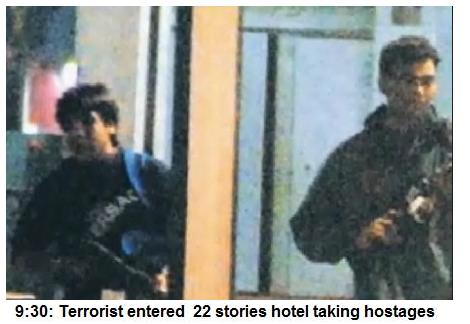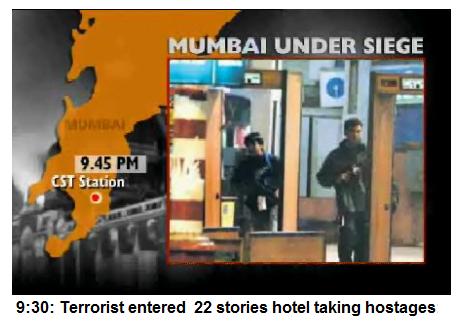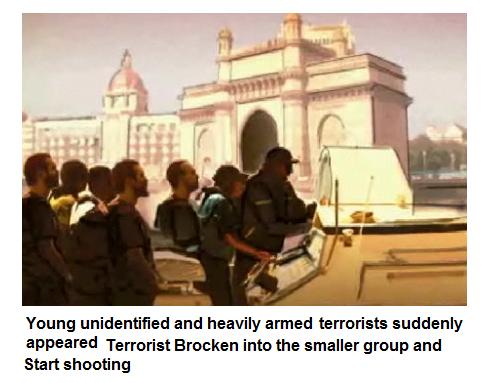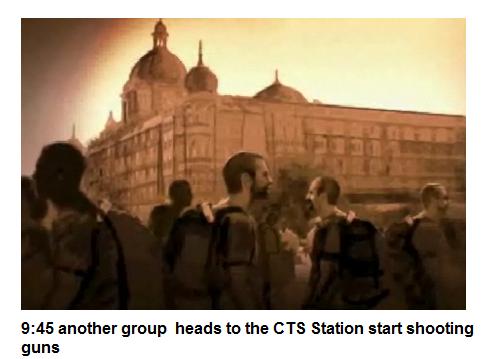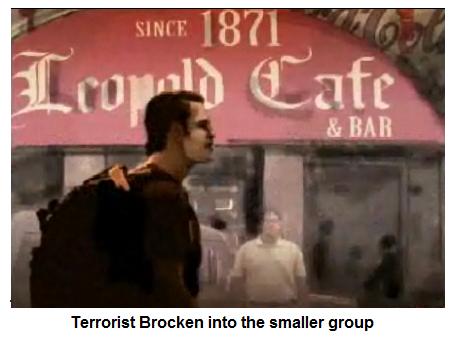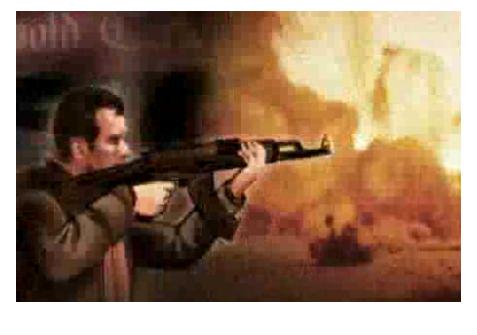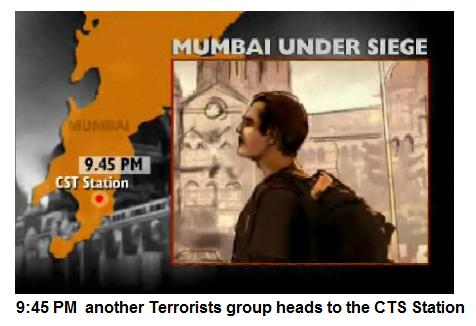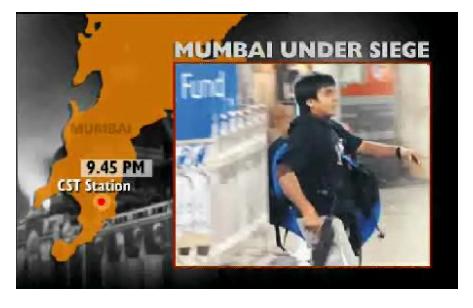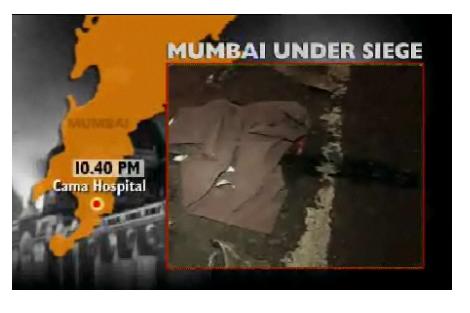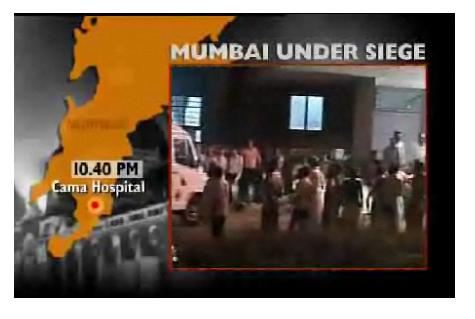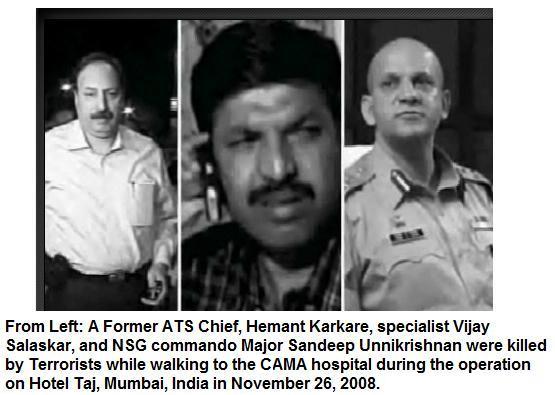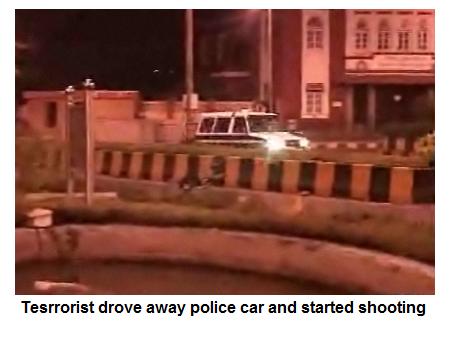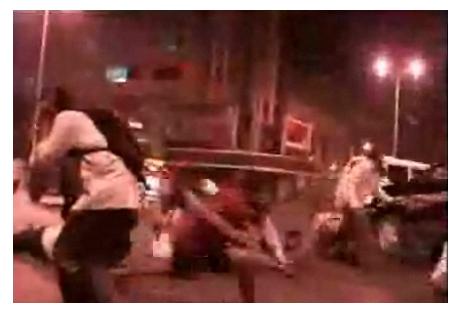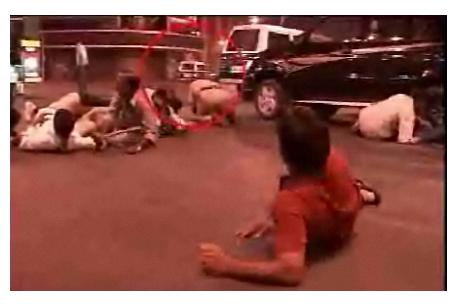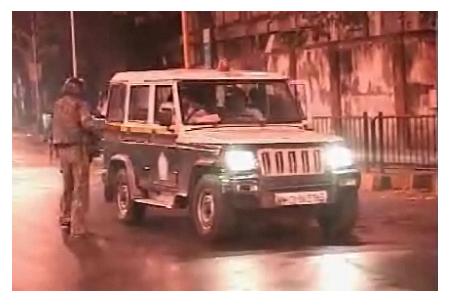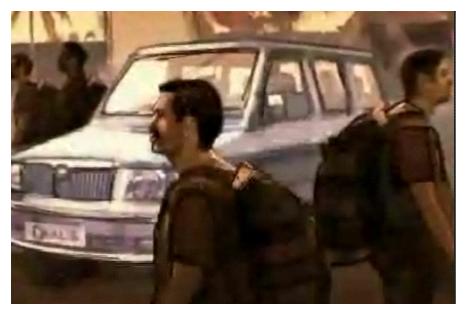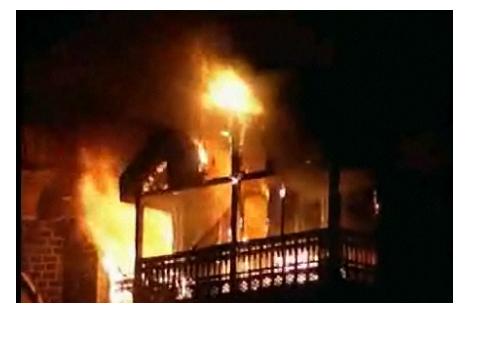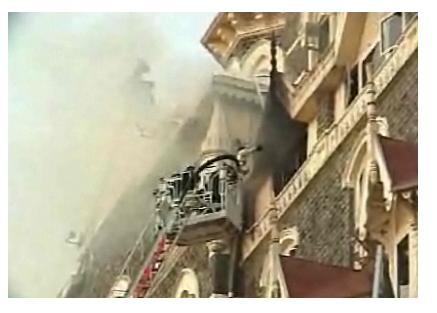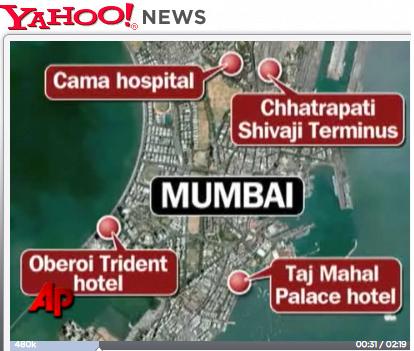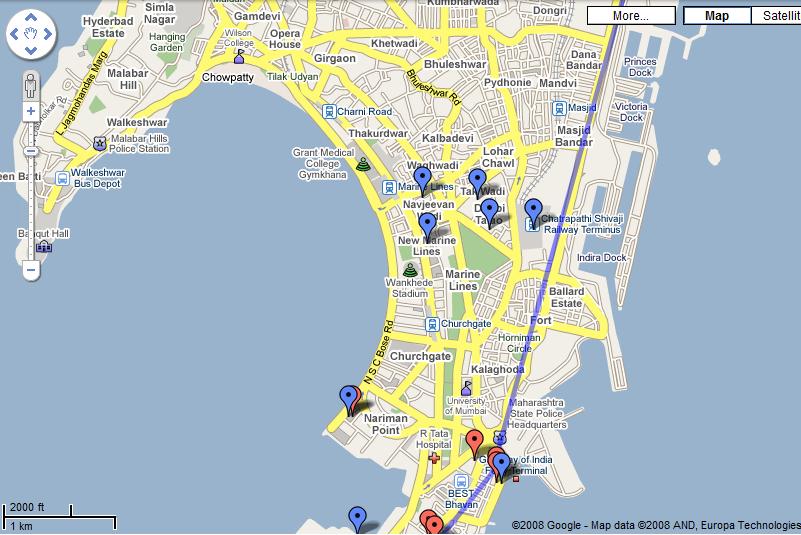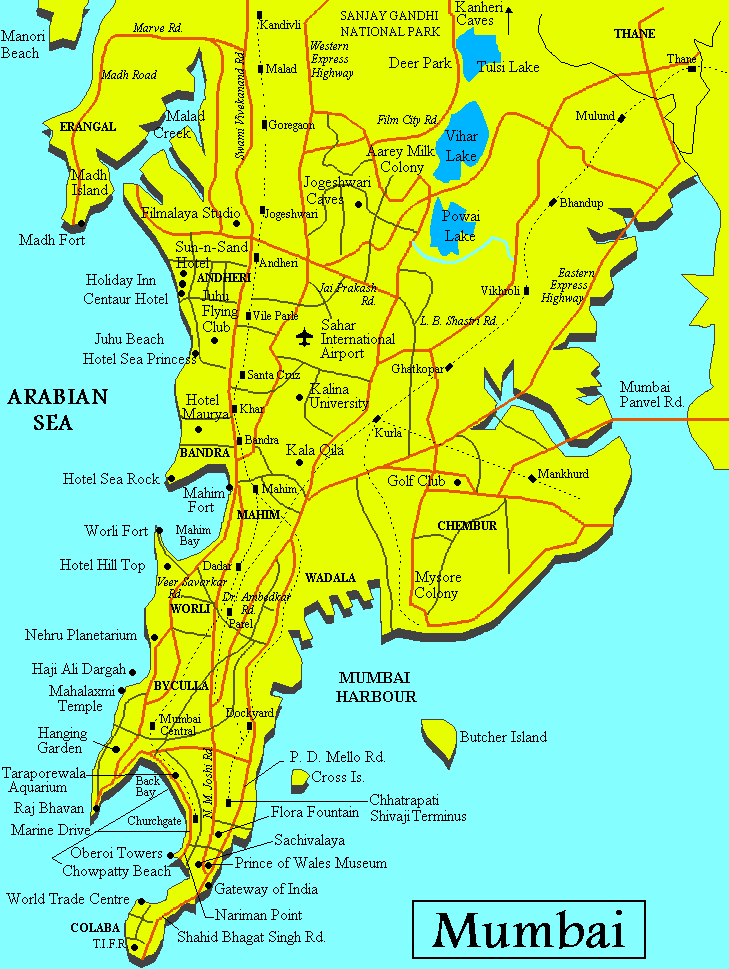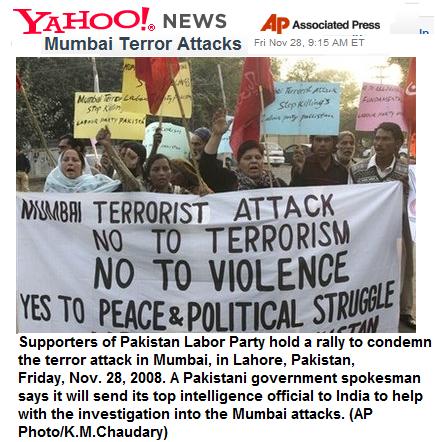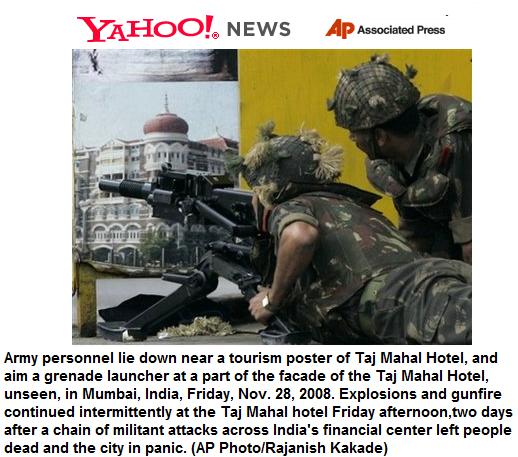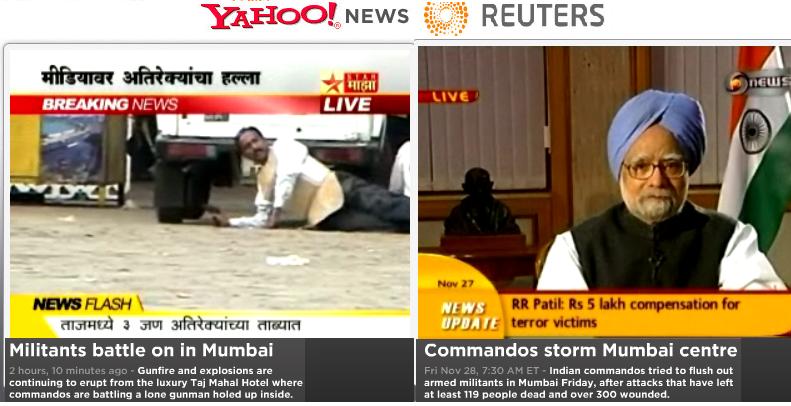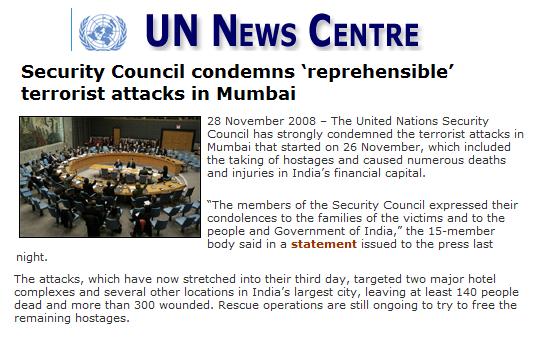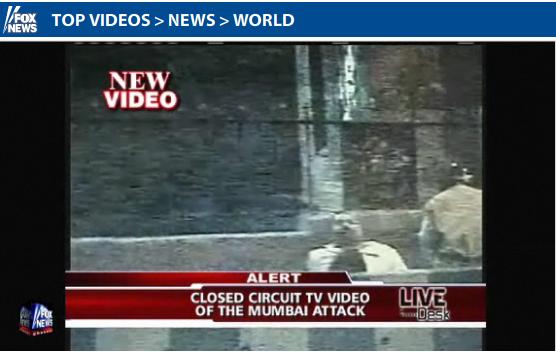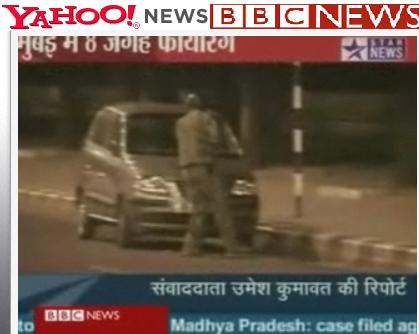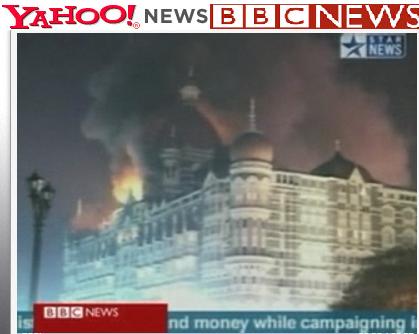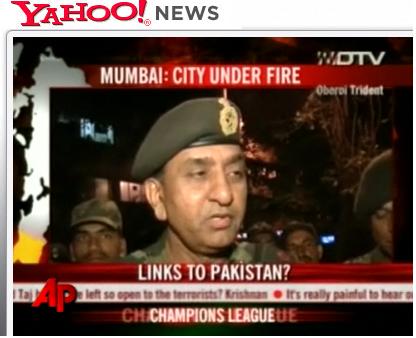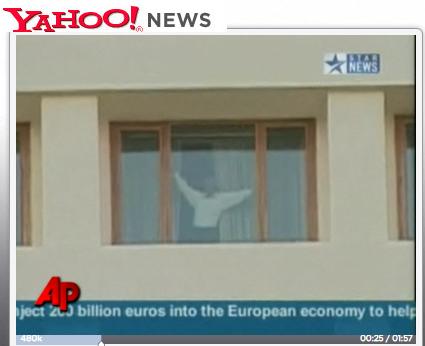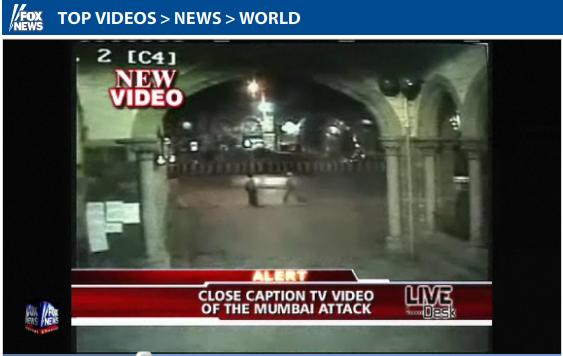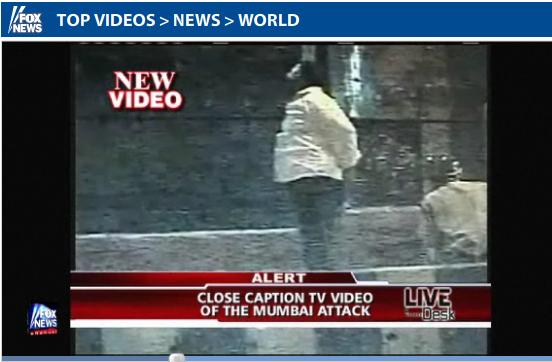India
Mumbai is in Danger:
Attacked by Terrorists
TIME TO SAFEGUARD BY
THE GLOBAL SECURITY:
ANOTHER 911 AT MUMBAI, INDIA
|
UN
General Ban Ki-moon deplores
coordinated terror attacks in Mumbai
In Nov. 26, 2008
Security Council condemns ‘reprehensible’
terrorist attacks in Mumbai
in Nov. 28, 2008
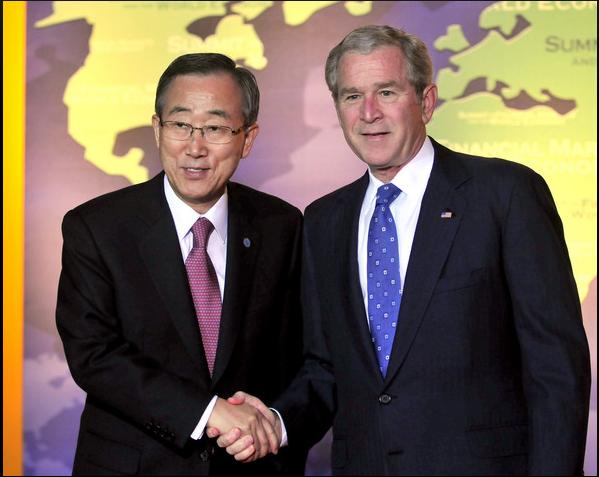 (Photo
by Pool/Getty Images North America)
(Photo
by Pool/Getty Images North America)
Photo: U.S. President George W. Bush poses
with Secretary-General of the United Nations Ban Ki-Moon during
the Summit on Financial Markets and the World Economy at the
National Building Museum on November 15, 2008 in Washington,
DC. Twenty world leaders are gathered at the summit to address
problems currently impacting the global economies. The day
of negotiations is the largest meeting of world leaders in
Washington in nearly a decade. |
|
28
November 2008 – The United Nations Security Council has strongly
condemned the terrorist attacks in Mumbai that started on
26 November, which included the taking of hostages and caused
numerous deaths and injuries in India’s financial capital.
“The
members of the Security Council expressed their condolences
to the families of the victims and to the people and Government
of India,” the 15-member body said in a statement issued to
the press last night.
The
attacks, which have now stretched into their third day, targeted
two major hotel complexes and several other locations in India’s
largest city, leaving at least 140 people dead and more than
300 wounded. Rescue operations are still ongoing to try to
free the remaining hostages.
Council
members “underlined the need to bring perpetrators, organizers,
financiers and sponsors of these reprehensible acts of terrorism
to justice” and urged all States to cooperate with the Indian
authorities in this regard.
“All
acts of terrorism are criminal and unjustifiable, regardless
of their motivation,” the Council reiterated in its statement.
The Mumbai attacks are just the latest in a series of acts
of terrorism to strike the South Asian nation over the course
of the past year. The north-eastern state of Assam and the
cities of Ahmedabad, Bangalore, Jaipur and Delhi have all
fallen victim to the scourge.
____________________.
In
November 26, Secretary-General Ban Ki-moon has condemned tonight’s
coordinated series of shootings and blasts by terrorists in
Mumbai, which have killed or wounded scores of people in India’s
commercial capital and largest city.
According to UN News, Mr. Ban said in a statement issued by
his spokesperson that “Such violence is totally unacceptable,”
“The Secretary-General reiterates his conviction that no cause
or grievance can justify indiscriminate attacks against civilians.”
UN
Secretary-General, Ban Kim Moon expressed his sympathies to
the families of the victims and the wounded and voiced his
solidarity with India’s Government and its people. He also
called for the perpetrators of tonight’s attacks to be brought
to justice.
India
has been hit by many terrorist acts this year, including deadly
explosions in the north-eastern state of Assam last month
and earlier attacks in Ahmedabad, Bangalore, Jaipur and Delhi.
-----------------
For Immediate Release Office of the Press Secretary
from White House: U.S.A
From
White House: November 26, 2008.
President
Bush offers his condolences to the Indian people and the families
of the innocent civilians killed and injured in the attacks
in Mumbai, India. The United States condemns this terrorist
attack and we will continue to stand with the people of India
in this time of tragedy.
This
afternoon, the White House National Security Council convened
officials from counterterrorism and intelligence agencies
as well as the State and Defense Departments. The U.S. government
continues to monitor the situation, including the safety and
security of our citizens, and stands ready to assist and support
the Indian government.
President
Bush has been updated regularly.
WASHINGTON
– The government ordered FBI agents Friday to fly to India
to investigate the bloody Mumbai attacks that killed two American
travelers and a former New York couple. U.S. citizens still
in the city were warned their lives remain at risk.
Intelligence
officials looked urgently for clues about the identity of
the attackers, a crucial unknown as Indian officials charged,
without giving details, that "elements in Pakistan" were involved.
A tentative rapprochement between the two nuclear-armed rivals
could hang in the balance, and a U.S. counterintelligence
official cautioned against rushing to judgment on the origins
of the militants.
------------------------------------------
Nov.
27, 2008: State officials said 119 people had died and 288
were injured.
Nov. 27, 2008: 125 dead, 327 injured in Mumbai attacks: MHA
27 Nov 2008, 2157 hrs IST, PTI
Nov. 28, 2008: Updated on Fri, Nov 28, 2008 at 21:59 in Nation
section
The death toll has risen to 155 while 327 others have been
injured in the terror attacks that began on Wednesday night.
The dead include eight foreigners.
Mumbai: At least five hostages and two terrorists have been
killed at Nariman House, a Jewish centre in Mumbai that was
taken over by militants on Wednesday night. J K Dutt, director
general of the National Security Guard (NSG) commandos, confirmed
the death of five hostages and that of two terrorists at the
Jewish centre in Colaba.
---------------------------
On
November 26, 2008, the Indian city of Mumbai was hit by a
series of coordinated terrorist attacks, aimed at locations
with heavily Western populations. Conflicting reports said
that either the Marriott or Ramada hotels on the beach in
Juhu, near Mumbai, were under siege.12 Elsewhere, attacks
accompanied by hostage-taking were reported at the Hotel Oberoi,
Trident Hotel and the landmark Taj Mahal Palace, which caught
fire after suffering a series of explosions. (1)
Mumbai City history
1534
- Bombay islands were captured by the Portuguese.
1661 - The islands were gifted in the dowry to Charles II
of England. 1668 - Charles II gave the islands to the East
Indian Company on lease. 1708 - Bombay became the H.Q. of
the East India Company.
1862 - The islands were merged to shape one stretch.
1869 - Suez Canal was opened and Bombay developed as an international
port.
1947 - Bombay was declared the capital of Bombay state.
1960 - Bombay was made the capital of Maharashtra.
1995 - The name was changed to Mumbai after the goddess 'Mumbadevi'.
|
|
|
Catch4all.com
sends the Deepest sympathy and condolences those of who are affected
by another 911 incidents in Mumbai, India
|
|
Part of the Exculsive coverages from CNN and ibnlive
|
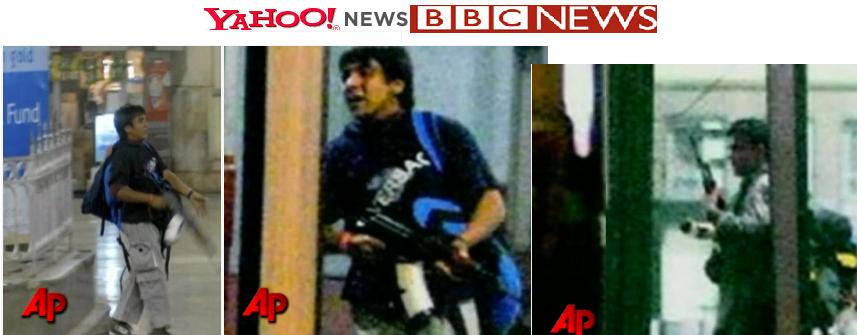
Surveillance
footage from inside the Taj Mahal Hotel, Apollo Bunder, Colaba,
Mumbai, 26/112008
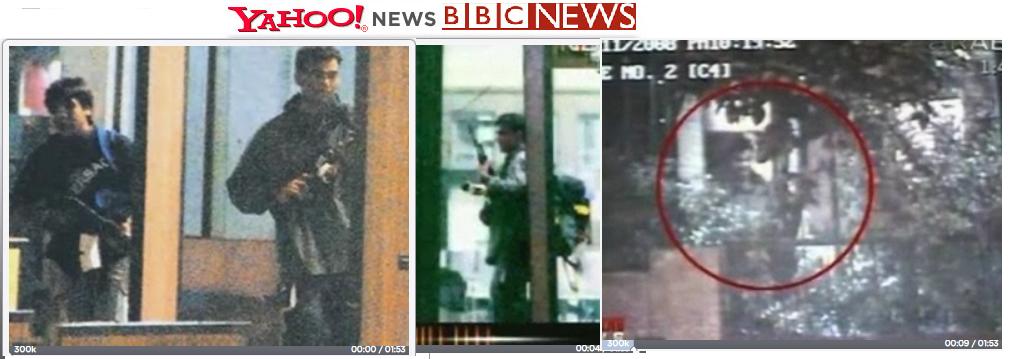
|
|
|
November
27, 2008:
MUMBAI, India - They showed up, as they do every night: businessmen
for meetings in the elegant restaurant that overlooks the harbor,
politicians for cocktails in a bar with velvet seats and wood and
marble floors, friends for a steak dinner by the pool.
But then the shooting started. Explosions followed in and around
the Taj Mahal Palace and Tower — a Mumbai landmark with sweeping
staircases, onyx columns and high alabaster ceilings, known as the
playground of the city's elite since it opened in 1903.
-------------------------------------
LONDON
- The attack on India's financial capital bears all the trademarks
of al-Qaida — simultaneous assaults meant to kill scores of Westerners
in iconic buildings — but clues so far point to homegrown Indian
terrorists, global intelligence officials said Thursday. Spy agencies
around the world were caught off guard by the deadly attack, in
which gunmen sprayed crowds with bullets, torched landmark hotels
and took dozens of hostages.
"We have been actively monitoring plots in Britain and abroad and
there was nothing to indicate something like this was about to happen,"
a British security official told The Associated Press on condition
of anonymity because of the sensitivity of his work.
------------------------------
NMUMBAI,
India - Indian commandoes fought early Friday to wrest control of
two luxury hotels and a Jewish center from suspected Muslim militants,
more than a day after a chain of attacks across Mumbai left at least
119 people dead and the city shellshocked.
Gunfire
and explosions were heard throughout the day Thursday and into the
night then the early morning hours from the besieged headquarters
of the ultra-orthodox Jewish outreach group Chabad Lubavitch and
the Taj Mahal and Oberoi hotels, two of the top gathering spots
for the Mumbai elite. Throughout the day, commandoes brought hostages,
trapped guests and corpses out of the hotels in small groups while
fires erupted periodically and firefighters battled the flames.
State
officials said 119 people had died and 288 were injured.
The
well-planned attacks began Wednesday night and officials said the
gunmen were prepared, even carrying large bags of almonds to keep
up their energy during the fight. Their main targets appeared to
be Americans, Britons and Jews, though most of the dead seemed to
be Indians and foreign tourists caught in the random gunfire.
The gunmen - some of whom strode casually through their targets
in khakis and T-shirts - clearly came ready for a siege.
"They
have AK-47s and grenades. They have bags full of grenades and have
come fully prepared," said Maj. Gen. R.K. Hooda. Vice-Admiral J.S.
Bedi, a top naval officer.
Ratan Tata, who runs the company that
owns the elegant Taj Mahal, said they appeared to have scouted their
targets in advance.
"They seem to know their way around the back
office, the kitchen. There has been a considerable amount of detailed
planning," he told a news conference.
Throughout the day, black-clad
Indian commandos moved through the two hotels room by room in a
bid to free the dozens of trapped people.
The Maharashtra state
home ministry said dozens of hostages had been freed from the Oberoi
and dozens more were still trapped inside. More than 400 people
were brought out of the Taj Mahal.
Authorities said they had
killed three gunmen at the Taj and were sweeping the Oberoi in search
of hostages and trapped people.
It remained unclear just how
many people had been taken hostage, how many were hiding inside
the hotels and how many dead still lay uncounted.
There were
conflicting reports about hostages at the Jewish center. A diplomat
closely monitoring the site said people were still being held there,
though an Indian state official said earlier eight hostages had
been released. Both sources spoke on condition of anonymity because
they were not authorized to talk to the media.
Two large blasts
were heard at the site early Friday morning.
On Thursday morning,
a woman, child and an Indian cook were led out of the building by
police, said one witness. The child was identified as Moshe Holtzberg,
2, the son of Rabbi Gavriel Noach Holtzberg, the main representative
at Chabad house. The child was unharmed, but his clothes were soaked
in blood.
Sandra Samuel, 44, the cook who pulled the boy out
the building, said she saw Rabbi Holtzberg, his wife Rivka and two
other unidentified guests lying on the floor, apparently "unconscious."
India has been shaken repeatedly by terror attacks blamed on Muslim
militants in recent years, but most of those attacks have been coordinated
bombings that struck random crowded places: markets, street corners,
parks.
These attacks were far more sophisticated - and more brazen.
They began at about 9:20 p.m. with the shooters spraying gunfire
across the Chhatrapati Shivaji railroad station, one of the world's
busiest terminals. For the next two hours, there was an attack roughly
every 15 minutes - the Jewish center, a tourist restaurant, one
hotel, then another, and two attacks on hospitals. There were 10
targets in all.
Indian media showed pictures of rubber dinghies
found by the city's shoreline, apparently used by the gunmen to
reach the area. Both of the luxury hotels targeted overlook the
Arabian Sea, which surrounds the peninsula of Mumbai.
At the
Chhatrapati Shivaji railroad station, a soaring 19th century architectural
monument, gunmen fired bullets through the crowded terminal, leaving
the floor spattered with blood and corpses.
"They just fired
randomly at people and then ran away. In seconds, people fell to
the ground," said Nasim Inam, a witness.
Analysts around the
world were debating whether the gunmen could have been tied to -
or inspired by - al-Qaida.
"It's clear that it is al-Qaida style,"
but probably not carried out by the group's militants, said Rohan
Gunaratna, of the International Center for Political Violence and
Terrorism Research in Singapore and author of "Inside Al-Qaida."
"Yesterday's attack is a watershed because for the first time,
the terrorists deliberately attacked international targets," he
said, noting that symbolic high-profile targets had been chosen,
apparently to magnify the effects of the violence.
Indian media
reports said a previously unknown group calling itself the Deccan
Mujahideen claimed responsibility in e-mails to several media outlets.
The Deccan is a region in southern India that was traditionally
ruled by Muslim kings.
Prime Minister Manmohan Singh blamed
"external forces" for the violence - a phrase sometimes used to
refer to Pakistani militants, whom Indian authorities often blame
attacks on.
"The well-planned and well-orchestrated attacks,
probably with external linkages, were intended to create a sense
of panic, by choosing high profile targets and indiscriminately
killing foreigners," he said in address to the nation.
Survivors
of the hotel attacks said the gunmen had specifically targeted Britons
and Americans.
Alex Chamberlain, a British citizen dining at
the Oberoi, told reporters that a gunman ushered 30 to 40 people
from the restaurant into a stairway and ordered everyone to put
up their hands.
The gunmen "stopped once and asked, 'Where are
you from? Any British or American? Show your ID.' My friend said,
'Tell them you're Italian.' And there I was with my hands up basically
thinking I was in a lot of trouble."
Chamberlain said he managed
to slip away as the patrons were forced to walk upstairs.
One
victim was British-Cypriot Andreas Dionysiou Liveras, 73, the owner
of a luxury yacht business, said the Cypriot foreign ministry and
his brother, Theophanis Liveras.
Andreas Dionysiou Liveras,
who was attending a conference, had spoken to the British Broadcasting
Corp. from a locked room inside the Taj Hotel before he was killed.
"As we sat at the table we heard the machine gun fire outside
in the corridor. We hid under the table and then they switched all
the lights off...All we know is the bombs are next door and the
hotel is shaking every time a bomb goes off. Everybody is just living
on their nerves," he said.
Among the dead were at least four
Australians and a Japanese, said the state home ministry. An Italian,
a Briton and a German were also killed, according to their foreign
ministries.
At least three top Indian police officers - including
the chief of the anti-terror squad - were among those killed, said
Roy.
Among those foreigners still held captive in all three
buildings were Americans, British, Italians, Swedes, Canadians,
Yemenis, New Zealanders, Spaniards, Turks, French, a Singaporean
and Israelis.
The United States, Pakistan and other countries
condemned the attacks.
The motive for the onslaught was not
immediately clear, but Mumbai has frequently been targeted in terrorist
attacks blamed on Islamic extremists, including a series of bombings
in July 2006 that killed 187 people.
Mumbai is one of the most
populated cities in the world with some 18 million crammed into
shantytowns, high rises and crumbling mansions.
India has been
wracked by bomb attacks the past three years, which police blame
on Muslim militants intent on destabilizing this largely Hindu country.
Nearly 700 people have died.
Since May, a militant group calling itself the Indian Mujahideen
has taken credit for a string of blasts that killed more than 130
people. The most recent was in September, when explosions struck
a park and crowded shopping areas in the capital, New Delhi, killing
21 people and wounding about 100. Relations between Hindus, who
make up more than 80 percent of India's 1 billion population, and
Muslims, who make up about 14 percent, have sporadically erupted
into bouts of sectarian violence since British-ruled India was split
into independent India and Pakistan in 1947.
-----------------------------
Resources:
Yahoo.com
Foxnews.com
UN.org
MSN.com
mumbainet.com
ibnlive.com
CNN
Zimbio.com
Mahalo.com
Google.com
Website provided by Catch4all.com, Sandra Englund. November 27,
2008. Rev. November 28, 2008. Rev. November 29, 2008
|
|
